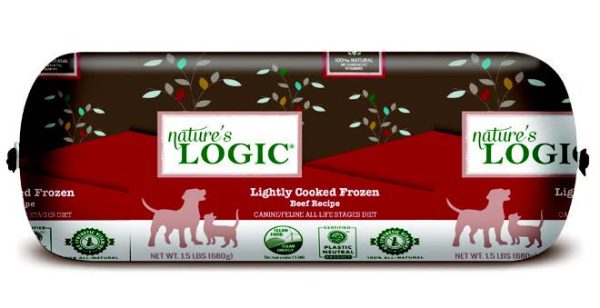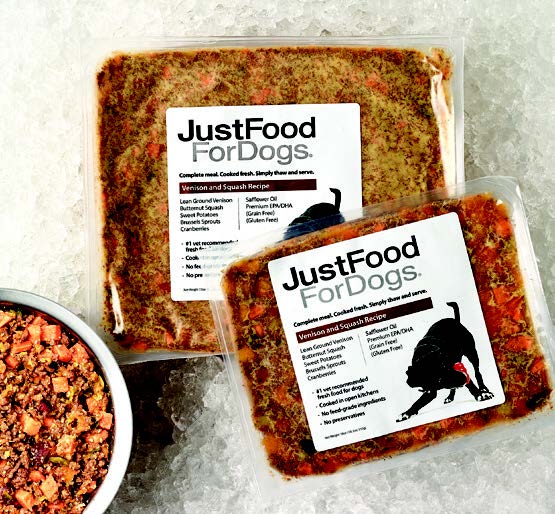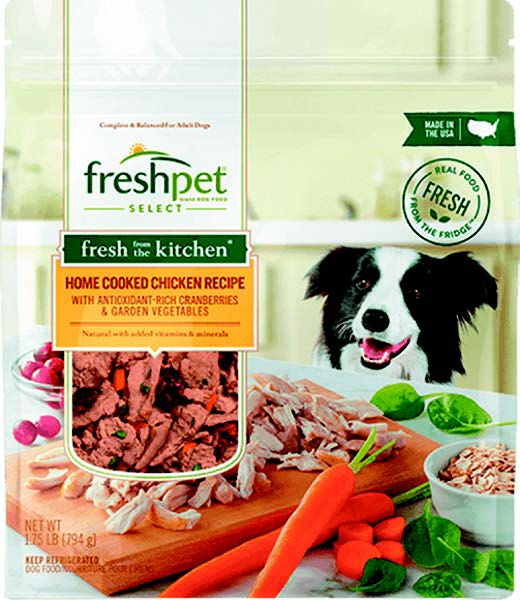Welcome to the age of “fridge” meals for your pooch pal. You can find these foods in refrigerator cases inside pet supply stores and some supermarkets and yes, even delivered to your door packed in dry ice. Most offer fresh ingredients that are free of any preservatives.
“There’s something naturally appealing about feeding your dog a ‘fresh meal,’” says Dr. Ernie Ward, veterinarian, founder of the Association for Pet Obesity Prevention and co-author of The Clean Pet Food Revolution.
He Offers This Checklist:
- Make sure the food is Association of American Feed Control Officials (AAFCO)-approved and nutritionally complete and balanced.
- Go online, check for food recalls and read online reviews about the company making the meal.
- Make sure the company has scientific data to back its claims. Having a board-certified veterinary nutritionist on staff is a plus.
- Consult your veterinarian about your dog’s specific health needs and dietary requirements before making the meal switch.
“If the fresh food checks all of those boxes and the pet parent doesn’t mind the added cost, then I say go for it,” Dr. Ward says.
Dr. Jean Hofve, a holistic veterinarian in Colorado, says pet parents need to set priorities.
“These commercial, refrigerated foods do take a bite out of your wallet, but it boils down to pay now or pay later,” she says. “If you want to save on veterinary bills in the future, you are going to invest in your dog’s nutrition now. Less processed ingredients are better digested and provide more nutritional value for your dog.”
Key Word: d-i-g-e-s-t-i-b-i-l-i-t-y. Dogs who eat quality foods tend to digest efficiently and produce healthy poop.
“Often, the first moment pet owners might notice a gut health or nutritional concern is when cleaning up after their pet,” says Dr. Tabitha Hookey, a veterinarian and Royal Canin scientific support specialist. “Symptoms of poor gastrointestinal health include vomiting, diarrhea, change in appetite, weight loss or abnormal stool quality.”
She adds, “A high-quality diet should start with carefully selected ingredients, which are digestible and bioavailable — meaning that the nutrients will be well-absorbed and used by the body.
In The Know
Considered a pioneer in this fresh-from-the-fridge food movement is Freshpet (freshpet.com), created in 2006 and based in Secaucus, New Jersey.
“Since 2006, Freshpet embarked on a mission to improve the lives of dogs and cats through the power of fresh, real food,” says Dr. Aziza Glass, the company’s veterinarian. “That means creating recipes with 100% natural farm-raised poultry, beef and fish, along with fiber-packed garden veggies and antioxidant-rich fruits.”
Prepared meals are quickly transported by temperature-regulated vehicles to specially designed Freshpet refrigerators in stores. Freshpet also works with retailer partners to deliver directly to pet parents. The company offers over 50 bagged meals and rolls that can last in the fridge without any fillers or preservatives until they’re ready to be served.
“Freshpet’s meals are gently cooked, making all 12 essential amino acids available for our pets — much more than what you find in the harsher, high-temperature cooking methods required to make kibble,” Dr. Glass adds.
Nom Nom Now (nomnomnow.com), based in Oakland, California, is another major player in this “freshcooked foods” market. All recipes are grain and gluten-free and are formulated by the company’s veterinary nutritionist, Dr. Justin Shmalberg. Each of the five recipes are formulated with a single protein, such as chicken and turkey.
“As a veterinary nutritionist, I’ve long recommended and developed home-prepared diets for clients’ pets,” Dr. Shmalberg says. “The Nom Nom food is prepared to order and individually portioned in vacuum-sealed pouches that ensures that food is fresh on arrival. Additionally, the product is shipped with dry ice.” Popularity of these fresh pet food options is steadily growing. Freshpet, for example, has maintained double- digit net sales growth each year since 2014.
Safely prep Dr. Hofve advises people warming up to the idea of serving their dogs these freshly made refrigerated and frozen foods to maintain good hygiene habits in the kitchen. Too much time left on a kitchen counter — and not properly refrigerated — can cause salmonellosis and other health risks.
“If you are buying these foods, make it your last errand and get promptly home to refrigerate them,” she says. “Most of these meals are cooked to some degree, but not all of them. Don’t leave it on the kitchen counter and take a phone call from your uncle, because if you let it come to room temperature, the meat can quickly become contaminated with bacteria.”
Her parting advice: Work with your veterinarian about adding prebiotics, probiotics and digestive enzymes to your dog’s diet to maintain a healthy gut.
Fridge Foods for Fido
Here’s just a sample of some of the fresh, cooked and refrigerated foods out there that you can get at the grocery and pet store or on a subscription basis.




LEARN MORE
Get more tips on choosing commercial pet food:
The World Small Animal Veterinary Association’s Global Nutrition Committee identifies more guidelines. Visit: wsava.org.
Dogster’s sister publication Whole Dog Journal delved into fresh, cooked commercial dog foods in its article Fresh Dog Food: A Review of Refrigerated Dog Food Sold in Stores, which you can read on whole-dog-journal.com.





